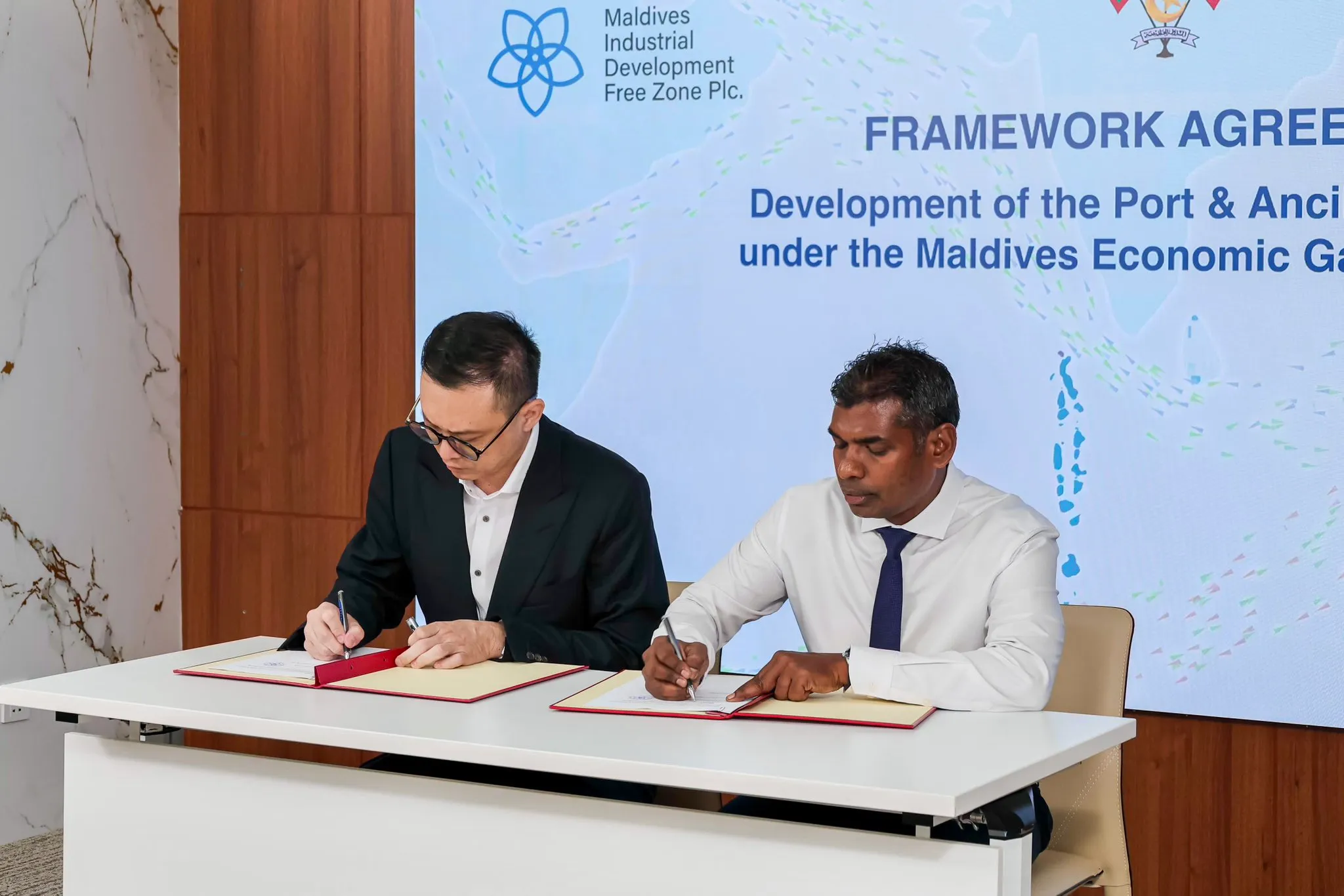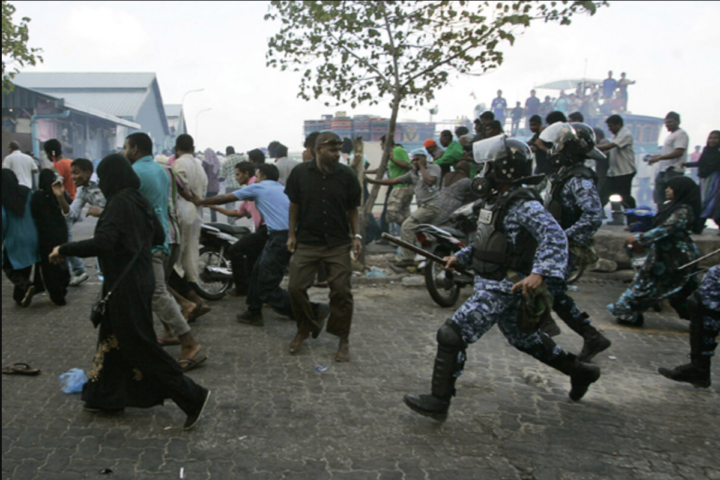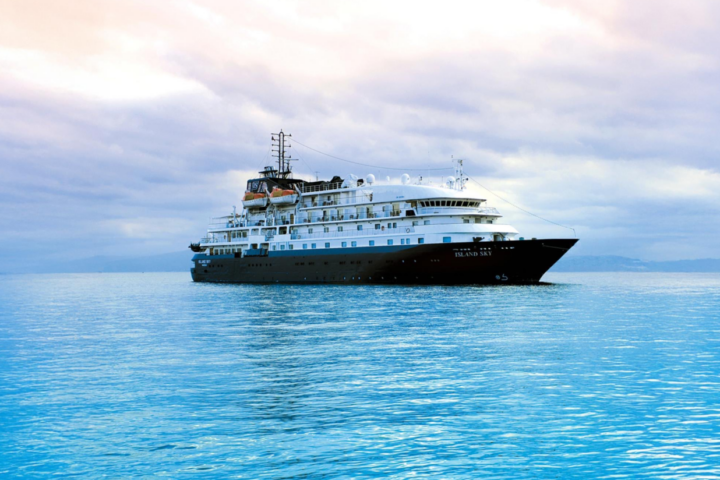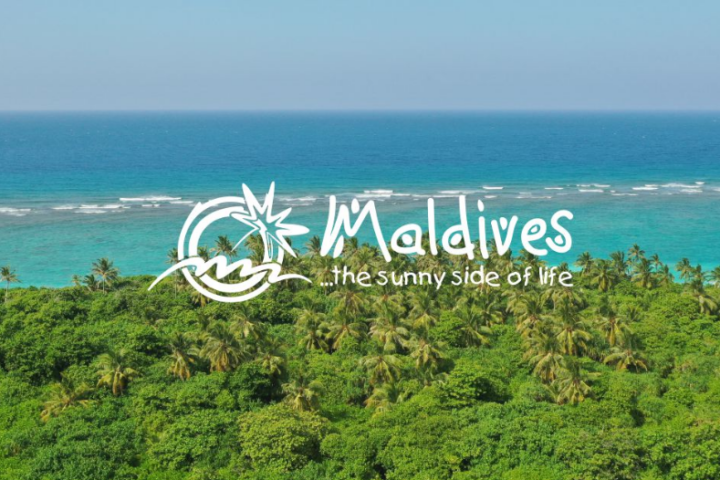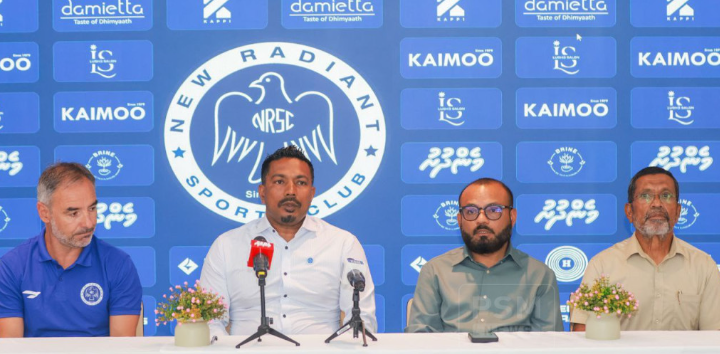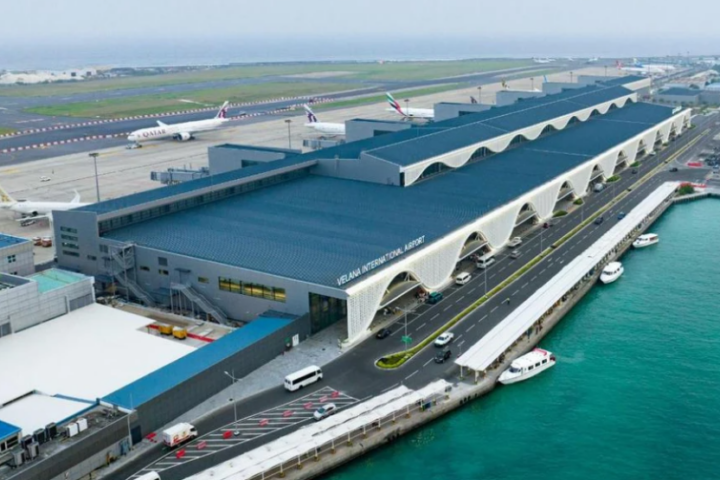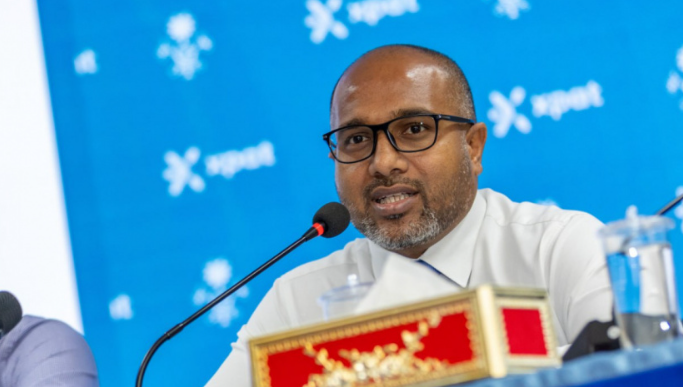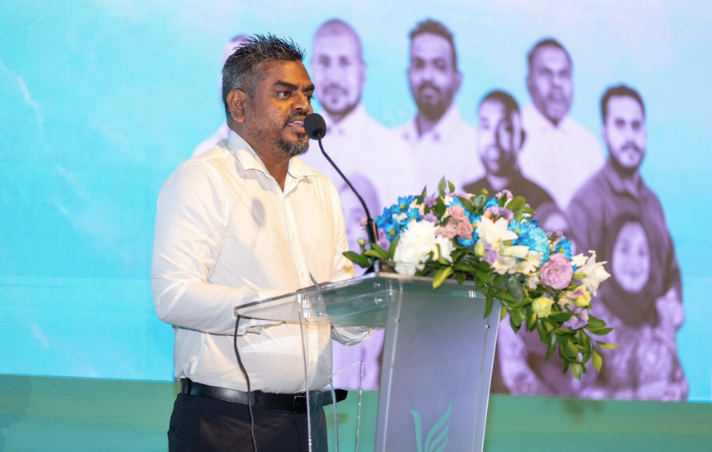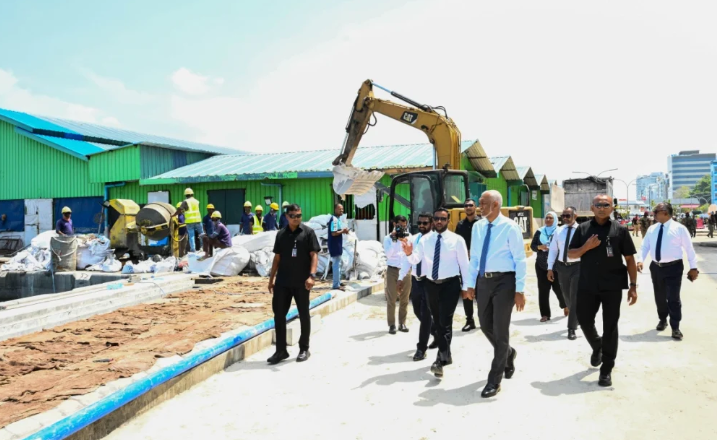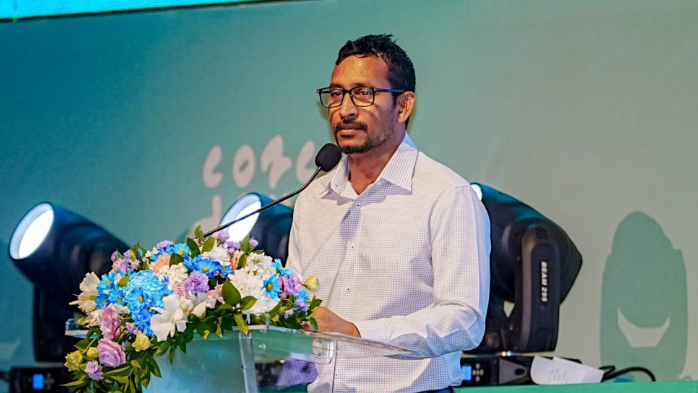Male’, Maldives — In a move towards bolstering its economic security, the Maldives has formalized a partnership with Singapore-based Capital Asia Investments Pte. Ltd. (CAI) to advance the Maldives Economic Gateway (MEG) Project. The agreement was signed on November 9th by Shimad Ibrahim, Managing Director of Maldives Industrial Development Free Zone PLC (MIDFZ), and CAI’s Chief Commercial Officer, Tan Kun Chiao George.
The MEG Project, which aims to transform the Ihavandhippolhu region into a major center for commerce and logistics, is seen as a cornerstone in President Mohamed Muizzu’s strategy to diversify the Maldivian economy. Launched under MIDFZ, a state consortium established in early 2024, the project seeks to reduce economic vulnerabilities and support long-term growth.
MIDFZ, representing five state-owned entities, leads various strategic projects nationwide, focusing on securing essential resources and establishing storage for key goods. The MEG Project is its flagship initiative and is intended to reinforce the Maldives’ self-sufficiency in times of global supply chain disruptions.
CAI, which manages $1.3 billion in assets across sectors including infrastructure, fintech, and renewable energy, brings a wealth of investment expertise to the table. Known for its active engagement in equity transactions, private placements, and strategic investments, CAI is expected to play a vital role in funding and structuring the MEG Project.
The framework agreement outlines a phased approach to MEG’s development, focusing initially on detailed financial assessments, cost evaluations, and defining key commercial terms. Both MIDFZ and CAI aim to establish the project under the Maldives’ Special Economic Zones framework, which could provide incentives for international partnerships and streamlined regulatory processes.
While the MEG Project promises to create new jobs and increase the Maldives’ economic resilience, it is also designed to align with sustainable and socially responsible development practices. Both parties have committed to minimizing environmental impacts and fostering a model of growth that benefits local communities.
This partnership underscores the Maldivian government’s ambition to position itself as a critical economic hub in the Indian Ocean, particularly as global demand for resilient supply chain nodes continues to grow.
The framework agreement with CAI marks a significant step forward in a long-term vision that, if successful, could reshape the economic landscape of this island nation.
